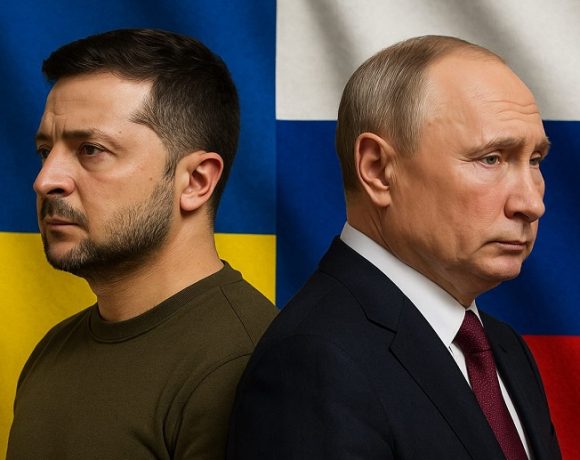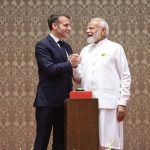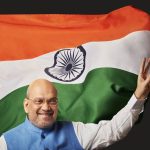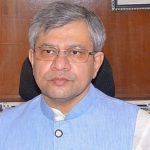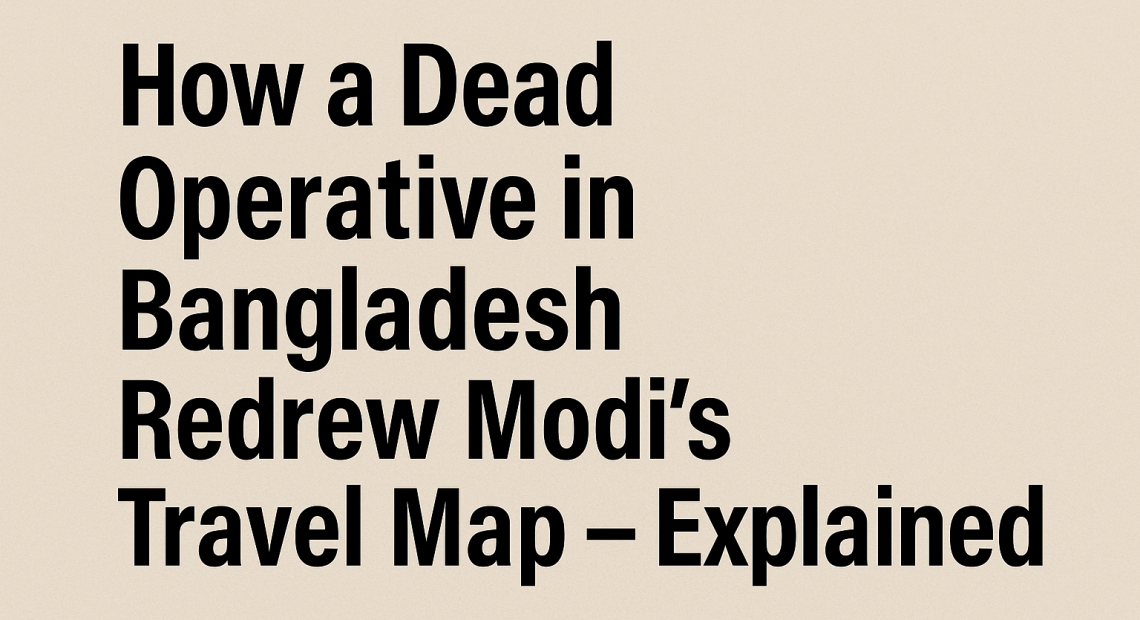
How a Dead Operative in Bangladesh Redrew Modi’s Travel Map – Explained
The sudden death of an American officer in a Dhaka hotel room could have been written off as a tragic footnote. Instead, it has become the thread tying together Prime Minister Narendra Modi’s unusual diplomatic behavior over the past two months. From an oddly private car ride with Vladimir Putin at the Shanghai Cooperation Organisation (SCO) summit, to skipping the Gaza Peace Summit, to attending ASEAN only via video link, the pattern is clear: Modi is retreating from physical appearances on the global stage. And whether or not Terrence Arvelle Jackson died of natural causes, the story around him has redrawn Modi’s travel map.
The Dhaka Incident
On August 31, 2025, Terrence Arvelle Jackson, a senior American officer with a long Special Forces background, was found dead in Room 808 of the Westin Dhaka. Bangladeshi police quickly suggested natural causes, but the swiftness with which his body was transferred to the U.S. Embassy and flown out raised questions. Reports began to circulate that Jackson was not just a traveler, but part of a covert mission.
In South Asia’s tense intelligence landscape, Dhaka has often been the overlooked chess square. Sitting on India’s eastern flank, it is both vulnerable to foreign infiltration and critical to regional power plays. Jackson’s death, regardless of how it happened, became the spark for speculation: Was this a CIA mission gone wrong, or something more sinister?
The SCO Summit and the Putin Ride
Barely weeks later, Modi was in Tianjin, China, for the SCO summit. The official agenda was about regional cooperation, but what made headlines was an unscripted moment: Modi seated beside Vladimir Putin in a private car, away from cameras and handlers.
For Russia, the timing was perfect. Against the backdrop of Jackson’s death, Moscow could pitch itself as the shield standing between Modi and Western plots. Russian intelligence chatter, amplified through friendly media, suggested that the CIA was “circling” Modi. Whether the claim was true or not mattered less than its effect. Suddenly, the optics were that Putin was Modi’s security partner, not just his diplomatic ally.
Modi Retreats From the Global Stage
Then came the real shift.
At the Gaza Peace Summit in Sharm el-Sheikh, Modi was invited to sit across the table from world leaders including Donald Trump, Abdel Fattah el-Sisi, and Pakistan’s Shehbaz Sharif. Instead, India sent a junior minister. The message was unmistakable: Modi would not be physically present.
At the ASEAN Summit in Kuala Lumpur, Modi again pulled back. Citing Diwali, he attended only virtually. This was not the globe-trotting Modi of the past decade, the leader who prided himself on personal diplomacy. This was a cautious Modi, absent from summit stages where India has traditionally sought visibility.
In isolation, each absence might be explained away — domestic festivals, awkward optics with Pakistan, or scheduling conflicts. But lined up together, they reveal a deliberate retrenchment.
Who Gains, Who Loses
To understand why this matters, we need to test all the scenarios surrounding Jackson’s death.
Scenario A: If the CIA plot was real
- Russia: Emerges as Modi’s protector, gains leverage.
- China: Quietly benefits from India’s tilt away from the U.S.
- United States: Loses credibility, risks rupture with India.
- India (Modi): Survives politically at home, but loses balance in global alignments.
- Bangladesh: Embarrassed as staging ground.
Scenario B: If Russia staged the death to frame the CIA
- Russia: Wins the most, manipulates India into mistrusting the U.S.
- China: Gains by default; India edges closer to SCO orbit.
- United States: Loses reputation despite innocence.
- India (Modi): Risks being played, trades independence for short-term narrative.
- Bangladesh: Neutral at best, collateral damage at worst.
Scenario C: If Jackson died naturally, but the story was exploited
- Russia: Still wins, weaponizing perception against the U.S.
- China: Gains again as India steps back from Western-led forums.
- United States: Loses time and credibility fighting shadows.
- India (Modi): Risks shaping policy based on conspiracy narratives rather than facts.
- Bangladesh: Loses image as Dhaka is painted a spy playground.
Across every scenario, one truth holds steady: Russia and China stand to gain the most, the United States stands to lose, and India risks shrinking its diplomatic footprint by leaning too far into caution.
Why This Matters for India
India’s power projection has always relied on showing up — from Modi’s “Howdy Modi” spectacle in Houston to standing tall at G20 summits. Retreating now, whether due to real threats or narrative manipulation, undermines India’s long-term strategy of being seen as a global leader.
The Jackson episode, however mysterious, has become a tool in Russia’s hands. Putin offers Modi the reassurance that Washington cannot, and Xi benefits from a distracted and cautious India. For India, the danger lies not in the death itself but in how others spin it.
Conclusion
Room 808 in Dhaka may never yield a definitive answer about how Terrence Arvelle Jackson died. But what happened after is already reshaping India’s diplomacy. Modi’s physical no-shows at the Gaza and ASEAN summits, coupled with his private SCO huddle with Putin, point to a leader suddenly more cautious abroad than ever before.
Whether Jackson was a CIA operative, a victim of Russian machinations, or just a man who died far from home, the result is the same: Modi is travelling less, Russia is smiling more, and India’s global presence is quietly contracting.
In geopolitics, sometimes the corpse matters less than the story written around it. And this story has redrawn Modi’s travel map.



